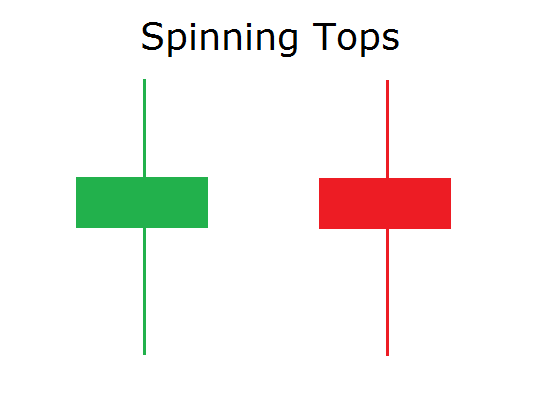Stock options vs restricted stocks
When companies want to compensate employees beyond salaries and bonuses, they often grant incentives like stock options and restricted shares. Stock options give employees the right to buy the company's stock at a preset strike price.
The value of a stock option is the current price of the stock less the option strike price. Restricted shares are shares of the company stock that vest to an employee over time. They are restricted in the sense that an employee cannot sell them until the shares vest.
Stock options provide the possibility of a big payoff if the stock price soars. This means employees only owe taxes when they sell the stock received after the options are exercised. Receiving or exercising statutory options does not create a taxable event, only the subsequent stock sale triggers a liability.
Factual Evidence On Why Options vs Stocks?If an employee owned the options for at least two years or held the shares for at least 12 months following option exercise, the profit is subject to favorable long-term capital gains treatment. Shorter holding periods will result in ordinary income, taxed at the normal marginal rate. Stock options are risky -- if the underlying stock never pierces the strike price, the options remain worthless.
Restricted shares have, when vested, the same value as normal shares trading on the stock market. Restricted shares cost employees nothing, and receiving them is not a taxable event. Employees are taxed as the shares vest. When a share is vested, the employee must note the share value on the vesting date and pay taxes on that amount as ordinary income. Any dividends received on restricted shares are taxable at ordinary rates, whether vested or not.
Within 30 days of receiving restricted shares, an employee can elect Section 83b tax treatment. Under this scenario, employees pay ordinary taxes on the shares when they are granted, calculated using the share price on the grant date. There are two benefits: The downsides are that if the stock never appreciates, the employee paid earlier taxes without benefit, and if, for some reason, the shares have to be forfeited after 83b election, the tax paid cannot be recovered.
Based in Chicago, Eric Bank has been writing business-related articles since , and science articles since His articles have appeared in "PC Magazine" and on numerous websites.
Stock Options, Restricted Stock, Phantom Stock, Stock Appreciation Rights (SARs), and Employee Stock Purchase Plans (ESPPs)
He holds a B. He also holds an M. Each week, Zack's e-newsletter will address topics such as retirement, savings, loans, mortgages, tax and investment strategies, and more. At the center of everything we do is a strong commitment to independent research and sharing its profitable discoveries with investors.
Restricted Stock Is Better Than Stock Options
This dedication to giving investors a trading advantage led to the creation of our proven Zacks Rank stock-rating system. These returns cover a period from and were examined and attested by Baker Tilly, an independent accounting firm. Visit performance for information about the performance numbers displayed above.
Skip to main content. Restricted Shares Stock Options Vs. More Articles Stock Grants Vs. Stock Options What Happens When I Don't Tender My Shares? RSUs The Impact of Transfer Restrictions on Stock Prices How Do I Give Up Convertible Stock Options?
What Happens to Stock Option Prices When the Stock Price Increase? Stock Options Stock options provide the possibility of a big payoff if the stock price soars. Restricted Shares Restricted shares have, when vested, the same value as normal shares trading on the stock market. Section 83b Election Within 30 days of receiving restricted shares, an employee can elect Section 83b tax treatment.
References 3 USA Today: A Case of Risk Vs. Reward IRS Publication Fairmark.
Resources 3 Getting Started In Employee Stock Options; John Olagues, John F. Summa Consider Your Options: Get the Most from Your Equity Compensation; Kaye A. Thomas he Compensation Handbook; Lance Berger, Dorothy Berger.
About the Author Based in Chicago, Eric Bank has been writing business-related articles since , and science articles since What Is a Typical Stop Loss Percentage for Options?
How Do Covered Stock Options Work?

Related Articles How to Trade High Volume Call Options for Profit What Does ISO Stand for in Restricted Stock? What Happens to Shares in a Bull Call Spread? How to Report Stock Options to the IRS How to Execute a Call Option.
Money Sense E-newsletter Each week, Zack's e-newsletter will address topics such as retirement, savings, loans, mortgages, tax and investment strategies, and more. Editor's Picks Effects of Stock Pinning on Option Prices Is the Call Option Price Affected by a Rise in Strike Price? Taxation of Stock Warrants How to Short a Call Option Options to Purchase Stock Equity Investments.
Trending Topics Latest Most Popular More Commentary. Quick Links Services Account Types Premium Services Zacks Rank Research Personal Finance Commentary Education. Resources Help About Zacks Disclosure Privacy Policy Performance Site Map. Client Support Contact Us Share Feedback Media Careers Affiliate Advertise.
Follow Us Facebook Twitter Linkedin RSS You Tube. Zacks Research is Reported On: Logos for Yahoo, MSN, MarketWatch, Nasdaq, Forbes, Investors. Logo BBB Better Business Bureau. NYSE and AMEX data is at least 20 minutes delayed. NASDAQ data is at least 15 minutes delayed.
